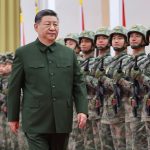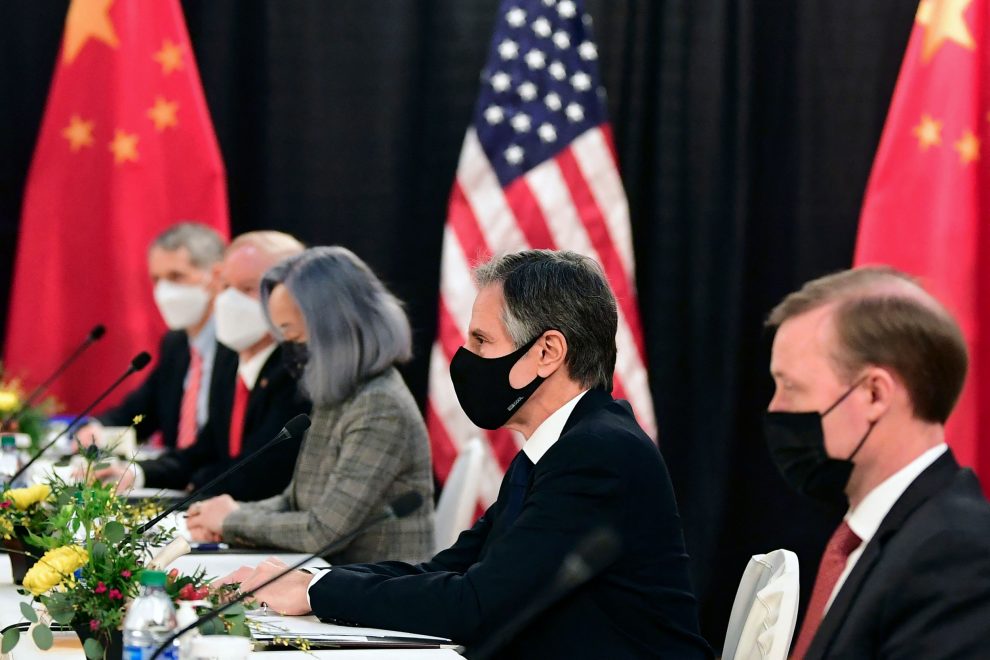Chinese diplomat Yang Jiechi rebuked U.S. Secretary of State Tony Blinken and National Security Advisor Jake Sullivan during a meeting in Anchorage, Alaska, on Thursday, citing the Black Lives Matter movement on U.S. human rights abuses.
The summit was the first bilateral meeting between the two countries under President Joe Biden, who has traditionally been soft on Beijing, and has struggled to balance a desire to break with Trump’s tough policies with the need for a strong stance.
Ahead of the meeting, the White House boasted that it had successfully insisted that the summit happen on home soil. Press Secretary Jennifer Psaki also promised earlier Thursday that the U.S. would bring up concerns about human rights in China.
But when Blinken spoke of the “rules-based international order,” and expressed “deep concerns” with China’s behavior in “Xinjiang, Hong Kong, Taiwan, cyberattacks on the United States, economic coercion toward our allies,” Jiechi struck back.
He objected to what he called a violation of diplomatic protocol, and said the U.S. could not lecture China from a position of strength.
He also claimed that the U.S. had “deep-seated” human rights problems:
China is firmly opposed to U.S. interference in China’s internal affairs … On human rights, we hope the United States will do better on human rights. China has made steady progress in human rights, and the fact is that there are many problems within the United States regarding human rights, which is admitted by the U.S. itself as well. … The challenges facing the United States in human rights are deep-seated. They did not just emerge over the past four years, such as “Black Lives Matter.” It did not come up only recently.
Blinken countered that in his discussion with allies, he was hearing “deep satisfaction that the United States is back, that we’re re-engaged with our allies and partners,” and “deep concern about some of the actions your government is taking.”
He added that a “hallmark” of American “leadership” was that the U.S. was willing to admit its mistakes — that it was engaged in “a constant quest to form a more perfect union,” but confronted its challenges “openly” and “transparently.”
Story cited here.
























